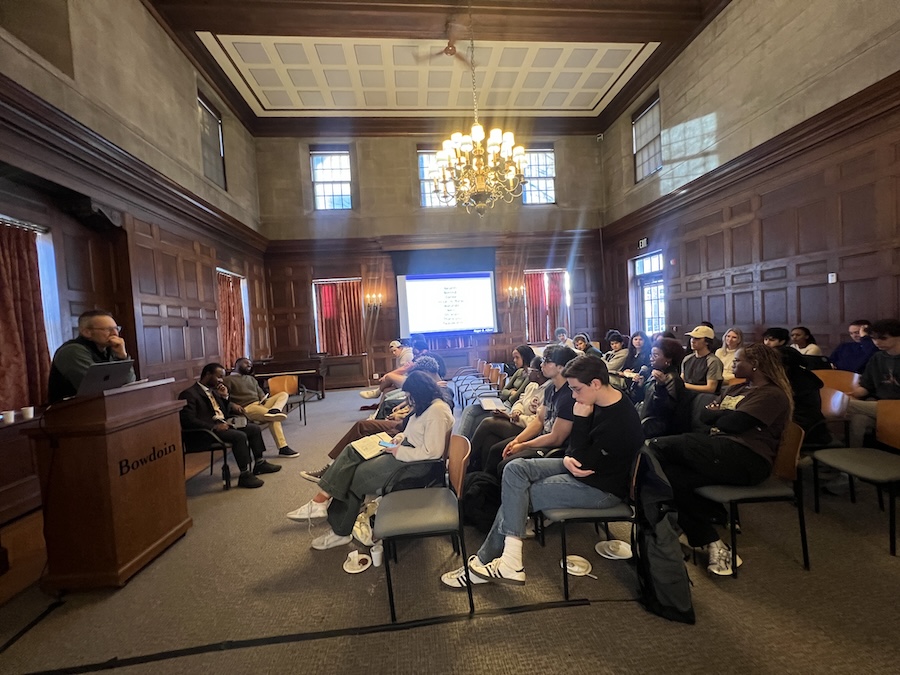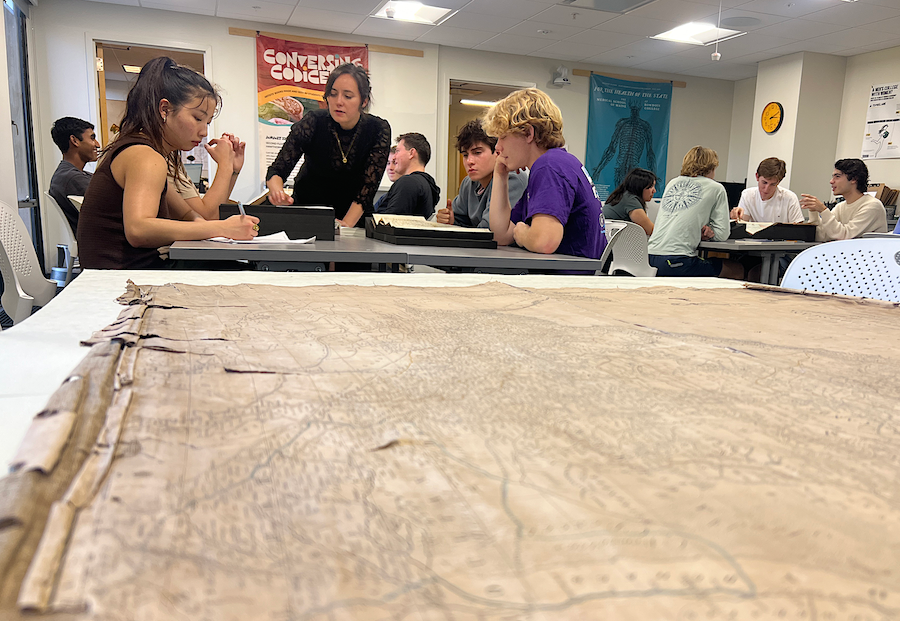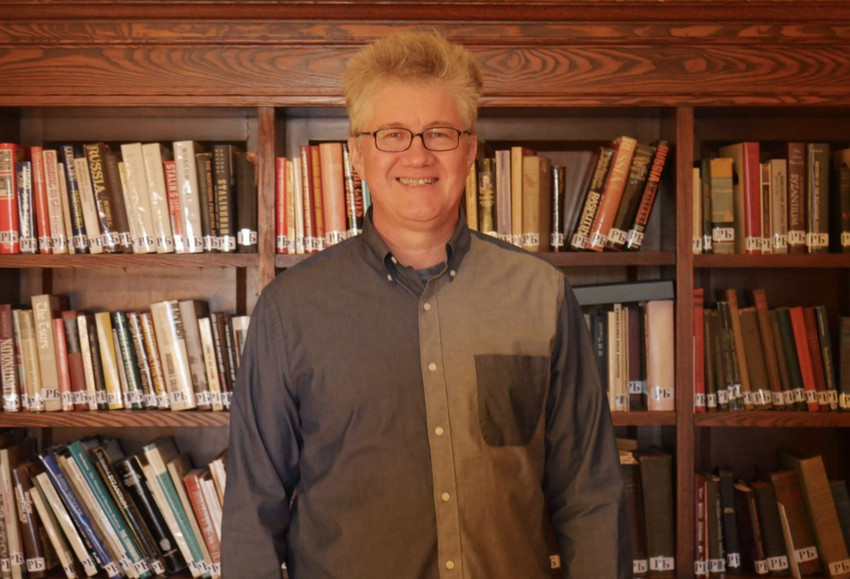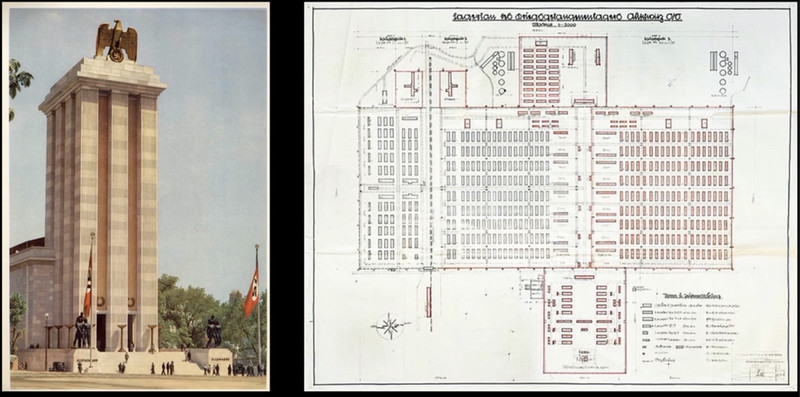In Barcelona, Ezra Rice ’19 Has Close-Up View of Independence Fight
By Rebecca Goldfine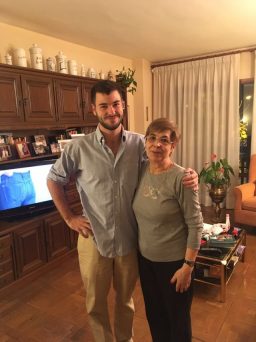
The following interview has been lightly edited for length.
Bowdoin News: What did you study in Barcelona?
Ezra Rice: I tried to take many area specific classes, including classes on the European Union, the culture and history of Barcelona, the United Nations, and the history and politics of Spain. It pays to learn something in class and have it immediately applicable outside school. After reading of the tyranny and suffering caused by Franco, I could go home and hear firsthand accounts of the oppression from my host mother. When the president of Catalonia fled to Belgium, I already understood the extradition process and regulations of the European Union.
BN: Why did you choose this city for your study abroad?
ER: I had never left the continent (besides a mission trip to Haiti) and wanted to maximize my cultural experiences….Furthermore…the Spanish and Catalan culture, geography, people, and food are second to none. It has been a fascinating experience; I could not ask for a more welcoming, distinct, or fun country to spend a semester in.
BN: How aware were you of the brewing political troubles before you arrived? Had you studied them in class?
ER: I had not studied the tensions and growing crisis extensively, but I was well aware of the situation. My brother, Tom, had studied in Barcelona as a junior two years ago and lived with an extremely pro-Catalan family.
BN: What were the days like leading up to the historic vote?
ER: In a word, unsettling. No one knew what the future held. The Spanish High Court declared the vote illegal, the national police raided and confiscated ballots, and two activists were jailed on charges of sedition. While Puigdemont (the president of Catalonia) promised, and the Catalan Parliament passed, legislation invoking independence pending a simple majority, the turnout, consequences, and likelihood of the vote even happening were all unknown.
BN: And what were the days like afterward?
ER: Company headquarters fled Catalonia, discussion of strikes, martial law, insinuations of Spain’s fascist past made, and bewilderment and confusion abounded. It was horribly frustrating and sad to watch a people perceive their country fall apart. Neighbor was pitted against neighbor and friend against friend. I heard stories of brothers, sisters, parents, and children refusing to speak with one another. We face many difficult even fundamental disagreements in the States. Yet we share a common culture and agree our constitution holds ultimate authority. Spain and Catalonia have neither, allowing their fight to continue on for hundreds of years.
BN: How has the tumult affected the university? Your studies?
ER: Following police brutality during the referendum, a general strike, including all non-essential workers, essentially shut down the city in protest. Smaller strikes have lead to sporadic class cancellations. During the height of the crisis, starting at 10 pm, Catalans banged pots and pans out their windows and dropped firecrackers in protest. This proved the larger issue, interfering with homework and sleep. Past that our program attempts to shield us; they, along with the US embassy, send emails warning us where and when protests take place so we can avoid them. In reality, for many these emails serve as information on how to get involved.
BN: Have you engaged in the protests?
ER: Absolutely, I went to many protests, particularly early in the semester. They are always nonviolent, unthreatening and to be honest somewhat festive. Beyond chanting and banner waving, drinking and socializing are widespread. At some point though, you must limit yourself or else fall behind in sleep and studies. If there were ever professional protestors, it’s the Spanish. At the height of the crisis it seemed every other day near a million people were gathering somewhere in the city.
BN: What’s the craziest/most shocking thing you have seen?
ER: During La Diada, a day commemorating Catalonian history and culture, shirts with the word “Sí,” an answer to the question of independence, are sold and worn by thousands in the streets. In the spirit of “being at home in all lands,” I had to have one. Weeks later in a grocery store, while wearing my new shirt, an elderly woman began calling me “ugly,” “disgusting,” and “shameful,” these being the most appropriate of her heckles. Trying my best to both apologize and ignore her, she quickly raised her voice. As things escalated, others began pointing, and telling me to take it off. I retreated to the street and switched my shirt inside out. The shirt has yet to be worn again.
